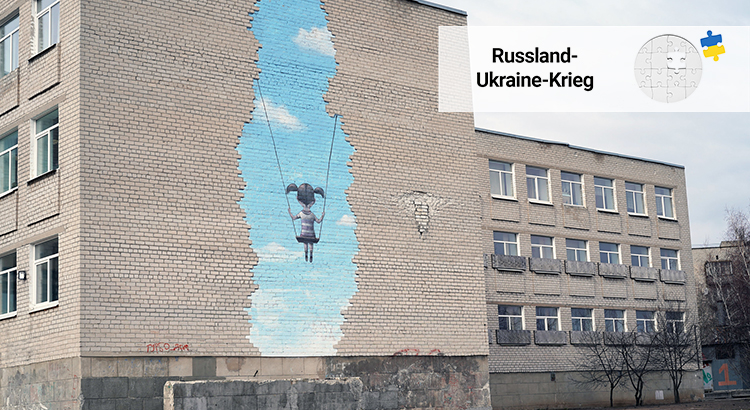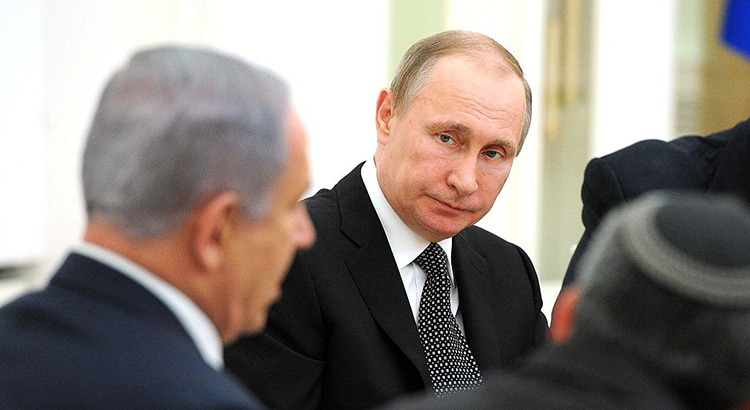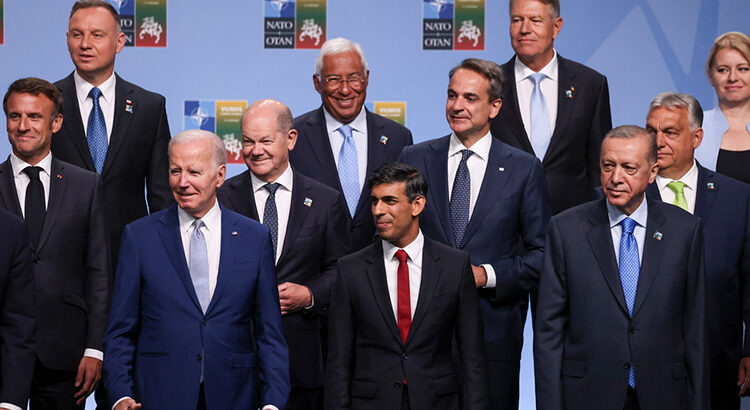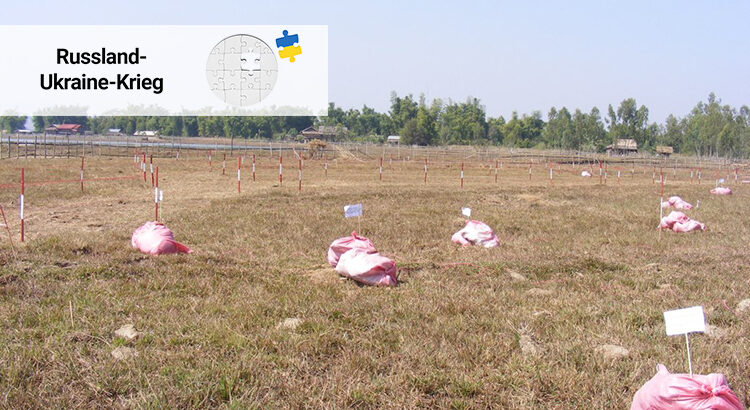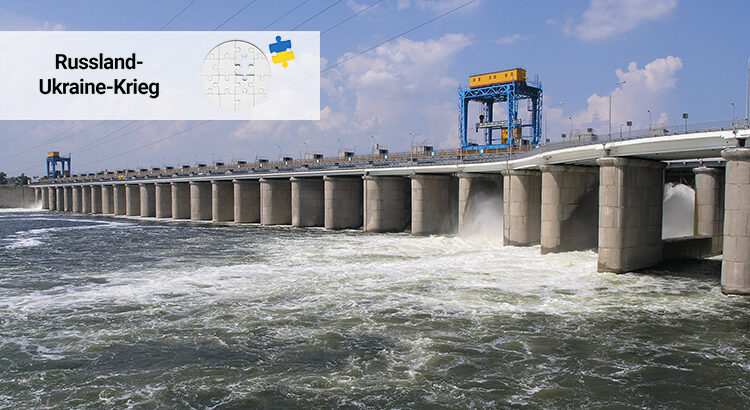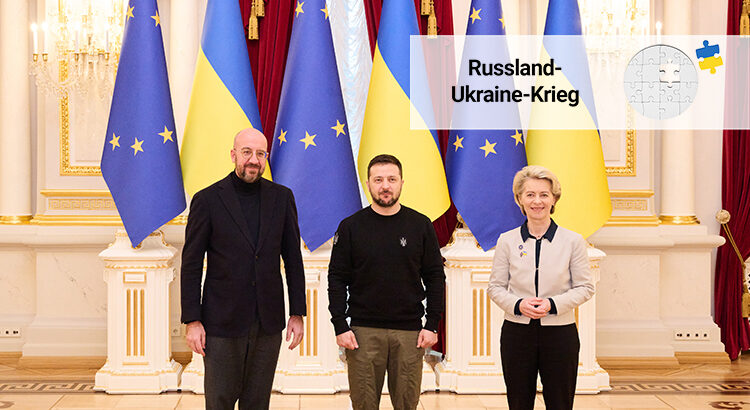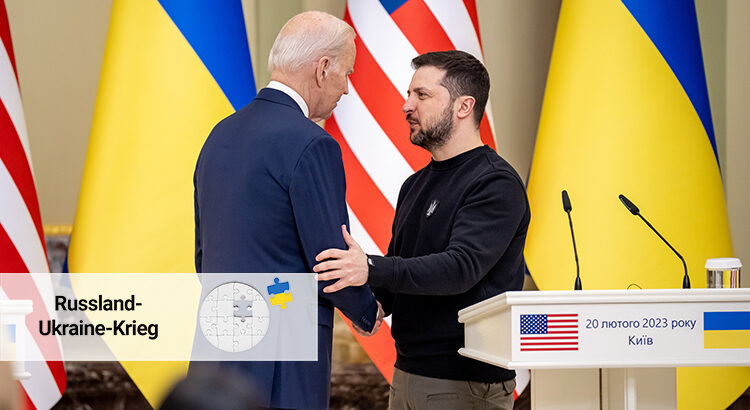Mit Beginn der russischen Vollinvasion der Ukraine vor zwei Jahren setzte auch bei uns am PRIF eine intensive Auseinandersetzung mit dem Konflikt ein. Nach nunmehr zwei Jahren Krieg, Hunderttausenden von Gefallenen und Verwundeten, Millionen Geflüchteten und wohl über einer Billion Euro in Wirtschaftsschäden stellt sich die Frage, wie es um die Zukunft der Ukraine bestellt ist.
Schlagwort: Russland
Wendepunkt in den Russland-Israel-Beziehungen
Moskau ist nach dem Terrorangriff der Hamas von Israel abgerückt und agiert offen pro-palästinensisch. Das hat auch mit dem Ukraine-Krieg zu tun.
Das Raketenabwehrsystem Arrow 3: Eine fragliche Beschaffung
Die Bundesregierung beschafft für rund vier Milliarden Euro das israelisch-amerikanische Raketenabwehrsystem Arrow 3. Im politischen Berlin stößt der Kauf auf breite Zustimmung, doch international sorgt er für Stirnrunzeln. Anders als das bereits vorhandene Patriot- und das kürzlich bestellte Iris-T-Luftverteidigungssystem der Bundeswehr eignet sich Arrow 3 nämlich gar nicht dazu, russische Raketen oder Marschflugkörper abzufangen. Auch andere Erklärungsansätze für die Beschaffung sind wenig überzeugend. Somit bleibt die Bundesregierung der deutschen Öffentlichkeit eine Antwort schuldig, gegen welche Bedrohungen sie das System in Zukunft einsetzen möchte.
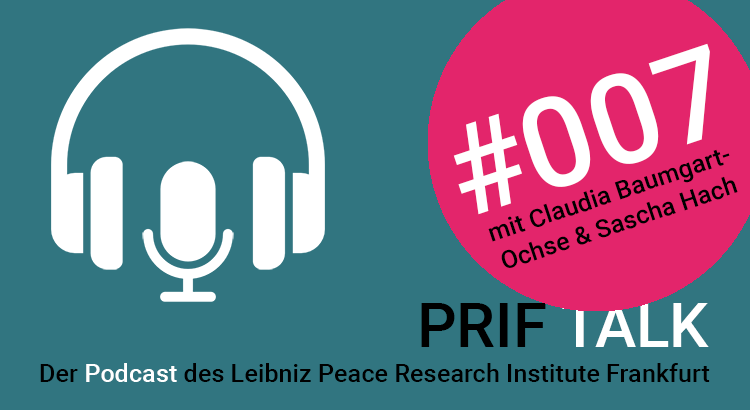
Podcast #007 // Das Friedensgutachten 2023
Welchen Beitrag leisten die Forschungsinstitute mit dem Friedensgutachten? Wie läuft der Entstehungsprozess des Friedensgutachtens? Was ist unter strategischer Stabilität zu verstehen? Und kann Russland noch ein Partner in der Rüstungskontrolle sein? Über das Friedensgutachten 2023 „Noch lange kein Frieden“ und insbesondere Kapitel 3 „Rüstungsdynamiken“ diskutieren wir mit Claudia Baumgart-Ochse und Sascha Hach.
Die NATO nach dem Gipfel von Vilnius: neue Stärke, ungewisse Zukunft
Der Gipfel in Vilnius unterstreicht eines: Die NATO ist wieder die zentrale sicherheitspolitische Organisation in Europa und darüber hinaus. Ihre Handlungsfähigkeit verdankt sie nicht zuletzt ihrer hegemonialen Figur. Was heute gut funktioniert, wird angesichts der Unwägbarkeiten der amerikanischen Führungsrolle zum Risiko für morgen. Signale für eine Stärkung der europäischen Eigenverantwortung gingen von dem Gipfel nicht aus. Im Gegenteil erteilt er Vorhaben der EU für eine eigenständigere Verteidigung eine Absage. Zukunftsfähig ist dieses Modell nicht.
Militärisch nützlich, moralisch verwerflich? Die Debatten um die US-Lieferungen von Streumunition an die Ukraine
Die Entscheidung von US-Präsident Joe Biden, Streumunition an die Ukraine zu liefern, hat nicht nur in den Vereinigten Staaten von Amerika, sondern auch in Deutschland zu intensiven Debatten geführt. Während die eine Seite auf den militärischen Nutzen von Streumunition verweist, um der Ukraine in ihrer Offensive entscheidende Vorteile zu gewähren, betonen die Gegner der Entscheidung die völkerrechtliche Ächtung und die moralische Notwendigkeit, diese Munition im Krieg nicht einzusetzen. Die Clustermunitionskonvention ruft alle Vertragsstaaten dazu auf, Nicht-Mitglieder, also auch die Ukraine, vom Einsatz solcher Munition abzubringen.
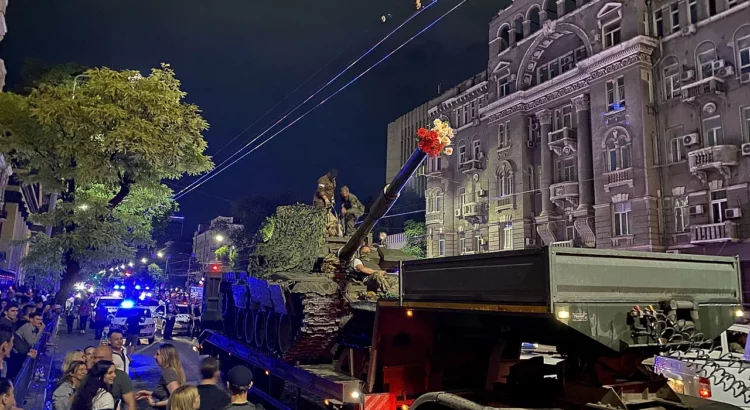
Russische Dolchstoßlegenden: Was bedeutet der Wagnermarsch nach Moskau langfristig?
Am 23. und 24. Juni 2023 zogen bewaffnete Kolonnen der russischen Söldner-Truppe Wagner unter Führung des russischen Oligarchen Prigoschin aus besetztem Gebiet in der Ukraine über Rostow und Woronesch gen Moskau. Ihr erklärtes Ziel: den russischen Verteidigungsminister Sergei K. Schoigu und den russischen Generalstabschef Waleri W. Gerassimow abzusetzen. Prigoschin warf ihnen vor, die russischen Kriegsführung gegen die Ukraine verraten zu haben.
Der dramatische Dammbruch von Kachovka und seine kurz- und langfristigen Folgen
Am Morgen des 6. Juni 2023 wurde gemeldet, dass der Kachovka-Staudamm zerstört wurde, und dass dadurch weite Gebiete flussabwärts, inklusive der Großstadt Cherson, durch eine Flutwelle bedroht werden würden. Der ukrainische Präsident Selensky macht für diese Katastrophe Russland, welches seit dem 24. Februar 2022 den Damm und das dazugehörige Wasserkraftwerk besetzt und kontrolliert hat, verantwortlich. Ob durch eine gezielte Sprengung oder durch grobe Fahrlässigkeit, der Dammbruch hat dramatische kurz- und langfristige Folgen für die Südukraine in Bezug auf Landwirtschaft, Wassersicherheit sowie auch den Schutz vor einem radioaktiven Unfall.
Der Platz der Ukraine in der europäischen Sicherheitsordnung: Konturen einer Debatte II
Die Diskussion um die Frage, wie sich die Sicherheit der Ukraine nach dem Krieg garantieren ließe, ist voll entbrannt. Wenn sich der Weg in die NATO als nicht gangbar erweisen sollte, welche Alternativen böten sich an und wie sind sie zu bewerten? In dem zweiten Blogbeitrag zu dem Thema geht es um Sicherheitsgarantien durch umfassende militärische Unterstützung, durch die Stationierung westlicher Truppen, durch die Aussicht auf EU-Mitgliedschaft und durch Arrangements, die auch russische Sicherheitsinteressen berücksichtigen.
Der Platz der Ukraine in der europäischen Sicherheitsordnung: Konturen einer Debatte I
Die Diskussion über den Platz der Ukraine in einer künftigen europäischen Sicherheitsordnung ist voll in Gange. Erste Weichen werden auf dem NATO-Gipfel am 11. und 12. Juli in Vilnius gestellt. Ob, wann und wie die Ukraine der Allianz beitreten könnte, ist allerdings umstritten. Diskutiert werden daher vier Alternativen: Sicherheitsgarantien durch umfassende militärische Unterstützung, durch die Stationierung westlicher Truppen, durch die Aussicht auf EU-Mitgliedschaft und durch Arrangements, die auch russische Sicherheitsinteressen berücksichtigen. Bei dieser Entscheidung können die Weichen auch falsch gestellt werden – mit weitreichenden Folgen für die europäische Sicherheit. Anlass genug, um in diesem und dem folgenden Blogbeitrag die Vorschläge zu bewerten.
